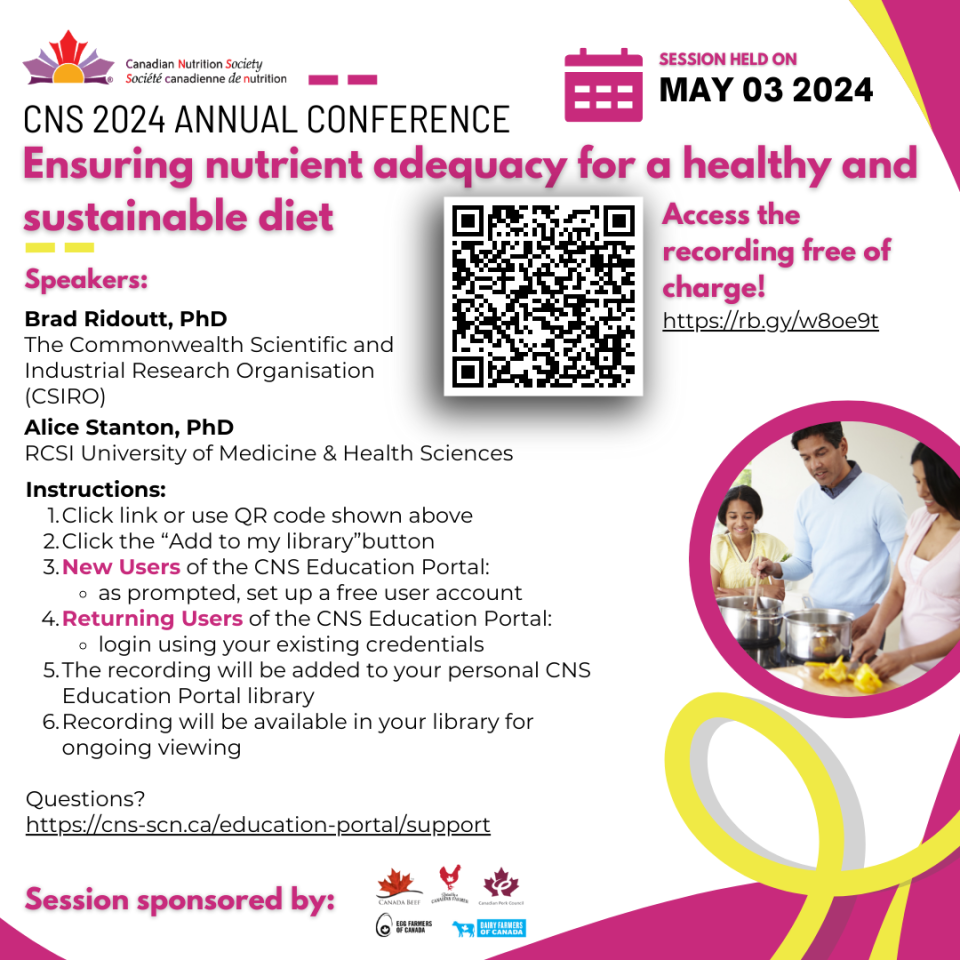To watch this free presentation, access CNS recordings here.
Note that this presentation has been made available and accessible at no cost to both CNS members and non-members, thanks to a DFC joint sponsorship.
By the end of the webinar, participants will:
- Deepen their understanding of the concepts underpinning a healthy, sustainable diet, such as nutrient adequacy and environmental metrics.
- Gain insight on the prevalence and risk factors associated with common nutrient deficiencies.
- Recognize the importance of nutrient density and dietary diversity in the context of a healthy, sustainable diet and how different food categories can make important, complementary nutritional contributions.
- Learn about the different environmental metrics associated with agriculture and how context can influence environmental footprint(s).
Key topics addressed:
- The leading contributors driving diet-related environmental impact.
- Nutrient adequacy and why it is inherently in line with the principles of a sustainable diet.
Key findings:
- Consumption of nutrient dense, whole foods with a focus on variety is fundamental in promoting nutrient adequacy.
- The core principle underlying most plant-based diets, that reduces intake of animal sourced foods, can result in exacerbation of baseline micronutrient and protein deficiencies.
- Both the over- and underconsumption of many food groups are linked to disease burden and nutrient deficiencies.
- For example, diets low in dairy are linked to a low likelihood of achieving EAR for calcium.
- Research supports a protective association between dairy intake and certain health outcomes, such as overweight/obesity, colorectal cancer, and type 2 diabetes. For example, certain studies have linked the intake of 2 or more daily servings of full-fat dairy with a reduced risk of overweight/obesity, total mortality, as well as heart attacks and strokes.
- With a decrease in percentage of calories coming from animal sourced foods (notably, when below 30%), there is a subsequent and parallel increase in the prevalence of micronutrient deficiencies.
- Among the top 20 foods rich in nutrients that are commonly deficient worldwide, 16 are animal-source foods (i.e., unprocessed meats and organ meats, dairy, eggs, fish, etc.).
- Discretionary foods (e.g., sports drinks, alcohol, soft drinks, and pastries) make up the highest contribution (about 30.6%) of environmental impact of the Australian diet (incl. factors such as climate, water scarcity, cropland scarcity, pesticide toxicity), yet do not support nutrient adequacy or health.
- Lowering environmental impact through dietary changes (e.g., food swaps) presents challenges, as often times, improvements in one environmental impact factor will lead to exacerbation in another category.





